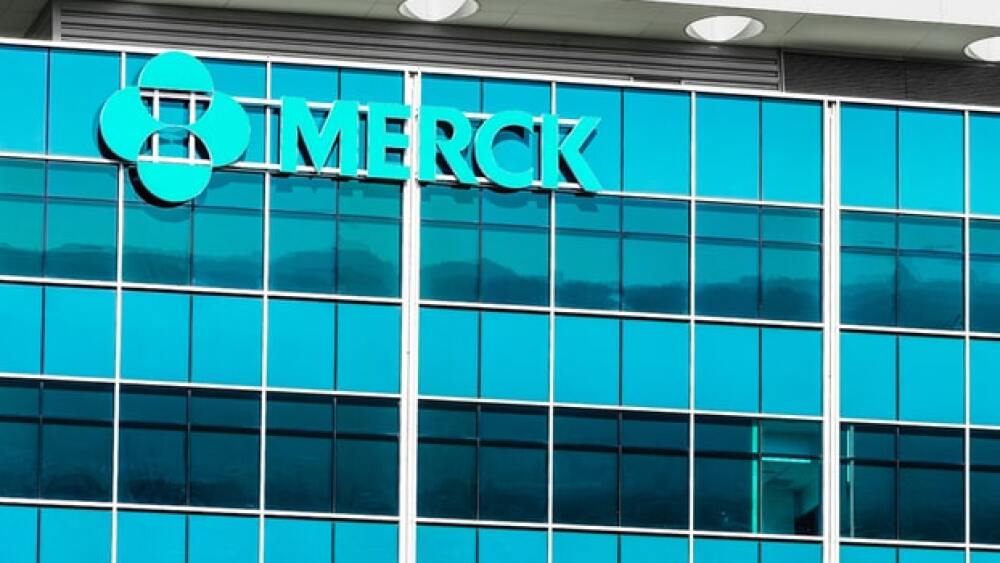Newly appointed CEO Rob Davis must find a way to balance Merck’s portfolio before investors get (even more) antsy. And he is looking to be aggressive.
Sundry Photography.
Merck’s blockbuster cancer drug Keytruda has been called a “franchise in a drug.” Patients rely on it, and Merck depends on it for a substantial amount of its overall revenue. But, as with all good things, the run must come to an end, and Merck’s patent exclusivity on Keytruda expires in 2028.
In 2020, the pharma giant brought in $48 billion in worldwide sales, of which Keytruda made up $14.4 billion. It was an increase of 30% for the immunotherapy, which is approved for melanoma, lung cancer, head and neck cancer, Hodgkin lymphoma, and stomach cancer. It seems that nearly every day, news breaks that Keytruda is being tested for another indication or in combination with another medicine.
Even the recent $11.5 billion acquisition of Acceleron will barely put a dent in the company’s overall reliance on Keytruda. SVB Leerink Senior Research Analyst Daina Graybosch, Ph.D., told BioSpace that projected revenues from Acceleron’s potential pulmonary arterial hypertension (PAH) blockbuster sotatercept and approved anemia medicine Reblozyl combined would only reduce the proportion of income brought in from Keytruda from 50% to 48%. So, newly appointed CEO Rob Davis must find a way to balance Merck’s portfolio before investors get (even more) antsy. And he is looking to be aggressive.
“I’m confident we have the firepower, the capability, the focus and urgency to do that,” Davis said in a statement to the Financial Times. “This is the first step on a journey to continue to build out our pipeline so that we have the ability to grow sustainably well into the next decade . . . We won’t be limited by the balance sheet.”
Davis, who took the baton from former chief executive Kenneth Frazier in July, signaled as much to investors last week when he said he would accept a one-notch credit rating downgrade if he needed to spend a lot to secure the right target. Just four months into his new role, Davis is on a roll, benefiting from Friday’s news that the COVID-19 antiviral molnupiravir Merck is developing with partner Ridgeback Biotherapeutics cut hospitalizations and death by 50% in a phase III trial. If approved, SVB Leerink predicted that molnupiravir could net Merck $12 billion in cumulative sales by the end of 2025. Merck’s stock jumped 11% after the announcement.
According to Graybosch, Merck is also doing everything it can to shore up the aforementioned combinations.
“If the combination is amenable to fixed-dose combination (as seems to be the case for many of Merck’s novel IO-IO combinations, e.g., vibostolimab plus Keytruda), then Merck could sell the therapy only in combination form. If you want to prescribe vibostolimab, you buy it packaged with Keytruda and pay one price, which would be at a premium to branded Keytruda,” she said.
Graybosch pointed to Bristol Myers Squibb‘s Opdivo plus relatlimab as a potential first example of this. The fixed-dose combination has a PDUFA date of March 19, 2022.
“It is 2028, but it’s not a massive cliff,” Graybosch said. “I think the debate is how much of a cliff it will be, depending on these other types of exclusivity that they have.”
According to the non-profit group Initiative for Medicines, Access & Knowledge (I-MAK), which advocates for cheaper drugs, Merck has filed 129 patents related to Keytruda. The group said this could extend the exclusivity period until 2036 and potentially even longer.
Still, according to people briefed on the matter, Merck is said to be looking at more potential acquisition targets, such as targeted oncology biotech Mirati Therapeutics and mRNA companies Strand Therapeutics and Arcturus Therapeutics. Strand is developing therapies based on the trendy technology for cancer immunotherapy and Arcturus is focused on developing mRNA therapies for cystic fibrosis.
Graybosch said that Merck will need to capitalize on its immuno-oncology experience.
“In immuno-oncology, they need to leverage their proprietary knowledge/data (of numerous therapies tested clinically on top of Keytruda by Merck and their collaboration partners) to make strong development decisions with their internal pipeline and external M&A,” she said.
In addition, Graybosch added that Merck will need to execute on the development and commercialization of other late-stage franchises, such as sotatercept, providing the Acceleron deal closes.






